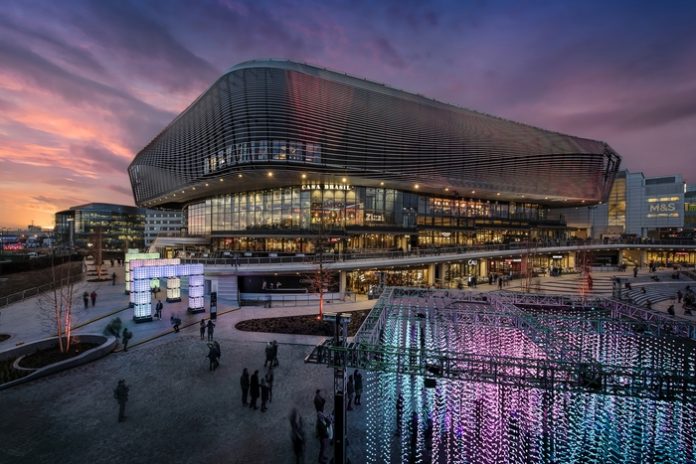Technology is driving a revolution in the South Coast property market, according to property consultancy JLL, which is hosting its annual South Coast Metropole event this week (Thursday 11 October).
Across the property industry, from the residential to industrial sectors, technology is having an unprecedented impact on the design, scale and value of property, which will be outlined in a series of presentations by experts from JLL’s Southampton office.
In the industrial sector, technology is driving demand for larger warehousing space, in particular to make space for robotic capability. In time, this trend, combined with a lack of development land, is expected to result in denser development, for example multi-storey warehouses along the South Coast, as has already been seen in the London Docklands and several sites within the M25.
In terms of office space, technology has already delivered a far greater degree of flexibility for staff, enabled by remote and smart technology, which has increased the emphasis on wellbeing in the workplace. Where in the past business space was predominantly designed around the needs of the business, commercial space is now built ‘around people’, supporting recruitment and retention and encouraging collaboration.
In the residential sector, high demand for new homes and pressure on the industry by the Government to reduce build times and emissions are fuelling a shift in construction methods. Increasingly, housebuilders are moving towards modular housing, constructed both on and off-site, now being delivered on a number of locations across the South Coast including 40 steel-frame homes at New Quarter, Bordon, East Hampshire, which were prefabricated off site, and 75 homes at St Marys Place in Felpham, Bognor Regis.
The high street is where technology has had the greatest impact so far. Whilst the losses and challenges of major brands has been widely reported, a new focus on residential and effective mixed-use development holds the key to a vibrant future for South Coast high streets, according to experts at JLL.
Emma Eaglestone, lead director at JLL Southampton, said: “The impact of technology is all around us but nowhere is it more keenly felt than in the property industry. We are seeing increased demand for bigger, more versatile industrial space, often with a view to accommodating sophisticated technology such as robotics and large-scale distribution. And the revolution in office space, delivering versatile, exciting and innovative environments for people to work in, is evident right across Southampton, Portsmouth and the South Coast region.
“But it’s on our high streets where we will see next significant wave of change. Truly mixed-use development will become the mainstay of the high street. Rather than the relatively uniform run of national-brand shops that we have found in the past, we will see a far-more integrated blend of houses and apartments interspersed with retail units, bars, restaurants, entertainment and leisure offers, alongside economic and business space. And we expect a far higher degree of independent operators in the mix – offering a complementary alternative that will connect Southampton’s West Quay with the forthcoming Bargate Quarter, supported by attractive, well managed public space.”
JLL has recently been appointed by Portsmouth City Council to carry out the delivery of its masterplanning work, which will see a move away from traditional high street approach to a much more residential, leisure and community focus.






















